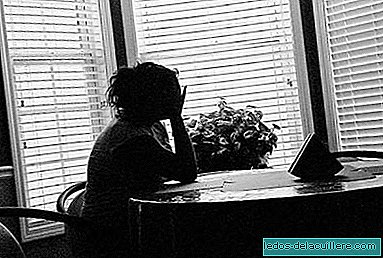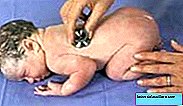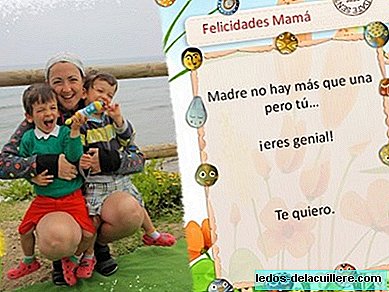
In previous posts we have seen the importance of preventing postpartum depression or, where appropriate, detecting it early. However, women and their families often do not know where to go if the time comes they decide to ask for help.
Remember that a correct and early evaluation will allow an effective treatment. Following that line, it is interesting to know what the evaluation and treatment of postpartum depression.
Evaluation: detecting postpartum depression
For a correct diagnosis to be made a correct evaluation is necessary. Although there are questionnaires intended for this purpose, such as Edinburgh Postnatal Depression Questionnaire (EDPS) , the best information is always provided by the clinical interview, which must be carried out by a professional who knows the symptoms of this disorder and other similar conditions, such as postpartum psychosis.
While the information provided by the environment is very useful, the direct communication with the mother It will be what makes the task easier for professionals.
Initially, it will be the doctor, the nurse or the midwife who will carry out a first interview, and then be able to refer the woman to the psychiatrist or psychologist.
And what is the treatment?
As in any other mood disorder, studies seem to indicate that the most effective treatment for postpartum depression is psychotherapy in combination or not with the administration of antidepressants, depending mainly on the severity of the picture.
What happens frequently is that mothers refuse to take drugs during breastfeeding period for fear of possible side effects in your child. In this sense, the investigations conclude that this treatment option is appropriate as long as the doctor personally assess the risks associated with the administration of each drug and advise on what strategies can help reduce the child's exposure.
The antidepressants take two to four weeks or more to achieve the desired therapeutic effect, so to cover that period sometimes the doctor prescribes an anxiolytic, again weighing the possible adverse effects.
From a medical point of view, research has also been conducted on the hormonal treatments. However, the results are inconclusive and this type of treatment may carry risks for the mother and the child.
Psychotherapy and postpartum depression
There is enough evidence to prove the efficacy of psychotherapy in the treatment of depression. Between the different types of psychological therapies that have proven effective in postpartum depression, the T should be highlightedCognitive Behavioral erapia and the Interpersonal Therapy
The Cognitive Behavioral Therapy it focuses on how the thinking processes influence emotions and behaviors and vice versa. Its main objective would be to teach the mother to identify and modify her negative and irrational thoughts, understanding how her way of approaching and interpreting reality is responsible for her depressive state, not reality itself. It would be combined with techniques aimed at increasing your activity and addressing difficulties.
The Interpersonal Therapy emphasizes the role of mother's relationships with the environment in the development of depression. In this case, the objective would be to identify possible conflicts and interpersonal disputes present in the family, with friends and other significant people in your life and teach it to address them in an efficient way.
Both types of therapy have the common goal of teaching coping skills. more effective and adaptive when it comes to challenge conflicting situations, which will ultimately have a positive impact on depressive symptoms. In addition, they get important modifications in a short period of time.
Other forms of support

The Support groups They also help many depressed women in their recovery process. It is a meeting place where they can express their concerns and fears in an environment of respect and tolerance and where, in addition, they can hear testimonies from other women in their same situation or who have passed through it.
Finally, some therapies such as yoga, the acupuncture, the aromatherapy wave light therapy They have demonstrated their positive effects in relieving some symptoms of postpartum depression.
Regardless of which one is chosen, it is important for the mother to assume, whenever possible, an active role in the decision of the treatment to follow. This will favor adherence to it and increase your perception of control and self-esteem. With each of the options available you will be adequately informed of the course of the treatment and its role in it.
Photos | Tanjila, Victor Bezrukov, on Flickr. In Babies and more | Lactation and psychiatric medications, Test to detect postpartum depression, Aromatherapy could decrease postpartum depression, Luminotherapy to treat postpartum depression.












